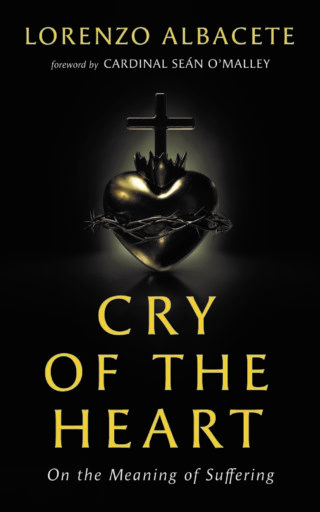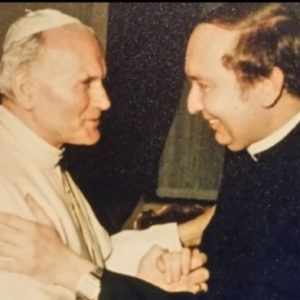Lorenzo Manuel Albacete Cintrón was born in 1941 in San Juan, Puerto Rico. As a young man, he came to Washington, to attend college for aeronautical engineering and to pursue graduate work in aerospace physics. After working as a research scientist for seven years at various institutions, he responded to a call to the priesthood in the Washington archdiocese.
Albacete’s brilliance as a theologian was recognized early on and sought after by those in the hierarchy of the Roman Catholic Church. It was while Albacete was serving as an advisor to Cardinal William Baum that he first met the then Archbishop of Kraków, Karol Wojtyla, and the two became friends. When Albacete went to Rome for graduate theological studies a few years later, he focused his work on the thought of Wojtyla, who by that time had been elected to the See of Peter as Pope John Paul II. In 1983, Albacete attained his doctorate in Sacred Theology with a dissertation on the pope’s theological anthropology.
After his return to the U.S., he helped to found the Washington, DC, campus of the Pope John Paul II Institute for Studies on Marriage and Family, a graduate school of theology, where he taught for ten years. From 1997 to 1998 he served as President of the Pontifical University of Puerto Rico. The following year he was appointed visiting professor at St. Joseph’s Seminary in New York.
Shortly after Albacete moved to New York in 1998, he was asked to a dinner where he met a handful of people influential in New York’s mainstream media. The friendships that arose in this circle led to Albacete’s cover story for The New Yorker on Pope John Paul II’s visit to Cuba, columns for The New York Times, appearances on The Charlie Rose Show and CNN, a surprisingly friendly public debate with noted atheist Christopher Hitchens, and a continuing relationship with the PBS series Frontline as a commentator and advisor.
Yet even as these friendships blossomed and exciting opportunities emerged, it was another, earlier encounter that was to have the greatest influence on Albacete’s life: a 1995 meeting with an Italian priest from Milan named Luigi Giussani (1922-2005). Monsignor Giussani was the founder of the ecclesial movement Communion and Liberation (CL), which traced its origins back to his experience teaching high school students in the 1950s.
For Albacete, the encounter with Giussani proved to be an event at once disruptive and liberating, both an ending and a beginning. Since his early days as a scientist, Albacete had grappled with a question that became a lifelong preoccupation: the relation between faith and life.


